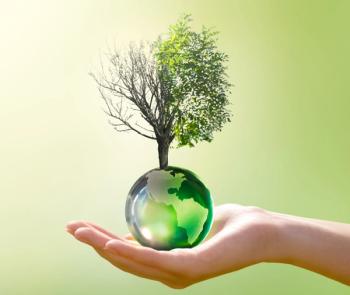
Social Psychiatric New Year Resolution #2: Stopping the Climate Bombs
Key Takeaways
- Climate change exacerbates psychiatric challenges, threatening basic psychological needs and causing empathy overload, grief, and trauma.
- Mental health disaster responses have improved but may be inadequate as climate conditions worsen.
What actions can mental health clinicians take to reduce climate instability?
PSYCHIATRIC VIEWS ON THE DAILY NEWS
Like nuclear war, the Los Angeles fires necessitated that climate change had to move up on my list of the scariest social psychiatric challenges for 2025. It is so hard to talk about that I waited until today, hoping the fires would be under control. They are not. Shelter, safety, and security, all on the basic levels of Maslow’s hierarchy of psychological needs, have been scorched or shattered for so many. The air is toxic. Looting only intensifies the losses. That is a setup for ensuring empathy overload, grief, and trauma.
Not only that, though hopefully much less destructive, at the same time paralyzing rain, ice, and snow is moving across the other half of the country. Whatever preparation was made for these climatic events, as good as they were, was insufficient.
We lived in LA for my internship in 1971-72. There was nothing like this danger back then.
I am quite sure that our mental health care disaster responses will be admirable. We mental health caregivers, first responders, and the general public are often at our best in disasters, and much progress has been made in adapting psychiatric treatment to address climate-related conditions and to increase community resilience. Yet, that responsiveness may also turn out to be inadequate as our climate deteriorates and the needs escalate.
Of course, climate change is a global phenomena, so what happens in the United States does not just stay in the United States, and is only part of a comprehensive daily climate and weather picture. We do know that 2024 was the hottest global year on record. However, I found it difficult to find out about the weather around the world yesterday.
Given limitations like these, what else, if anything, might help that we in mental health can contribute to the cause? Here are some possibilities that have come to mind.
- The establishment of a collective Task Force of the American Psychiatric Association, the World Association of Social Psychiatry, the World Psychiatric Association, and the psychiatric associations of other countries to address climate concerns.
- Putting increased political pressure and the right degree of anxiety on local, national, and international governments and fossil fuel corporations.
- Personal resolutions to contribute something to reduce climate change.
- A recommendation for all local weather reports to include weather around the world, especially that depicts climate-relate damage.
- Realistically educate and reassure children about the future of the world; for late preschool and early elementary school, the book Trinka and Sam and the Big Fire seems helpful.
- Once capable of more independent analysis, harness artificial intelligence to come up with solutions that we humans have not thought of.
Our first posted resolution was stopping Dr Strangelove, meaning preventing nuclear war. Now, it seems we are also at war with nature and our climate. If we continue to conquer nature with fossil fuels as the spoils, we will also imperil our life-sustaining climate. Rather, we will win if we are peaceful shepherds of nature and our environment.
And what about a new name? Climate change has always seemed to me to be too ambiguous. Change for the better or worse? It is why I have tended to use climate instability over these last 17 years of climate activism. But LA suggests climate bombs. The photos coming out of Los Angelos look like bombed out cities, maybe most like fire-bombed Dresden in World War II. At least the fiery wind bombs have not killed many people. However, besides these wildfires from wind bombs, the world has increasingly intense hurricane rain bombs, tornado bombs, and snowmageddons. Perhaps the wording of bombs will increase our necessary responsiveness. Or is that too scary?
Dr Moffic is an award-winning psychiatrist who specialized in the cultural and ethical aspects of psychiatry and is now in retirement and retirement as a private pro bono community psychiatrist. A prolific writer and speaker, he has done a weekday column titled “Psychiatric Views on the Daily News” and a weekly video, “Psychiatry & Society,” since the COVID-19 pandemic emerged. He was chosen to receive the 2024 Abraham Halpern Humanitarian Award from the American Association for Social Psychiatry. Previously, he received the Administrative Award in 2016 from the American Psychiatric Association, the one-time designation of being a Hero of Public Psychiatry from the Speaker of the Assembly of the APA in 2002, and the Exemplary Psychiatrist Award from the National Alliance for the Mentally Ill in 1991. He presented the third Rabbi Jeffrey B. Stiffman lecture at Congregation Shaare Emeth in St. Louis on Sunday, May 19, 2024. He is an advocate and activist for mental health issues related to climate instability, physician burnout, and xenophobia. He is now editing the final book in a 4-volume series on religions and psychiatry for Springer: Islamophobia, anti-Semitism, Christianity, and now The Eastern Religions, and Spirituality. He serves on the Editorial Board of Psychiatric Times.
Newsletter
Receive trusted psychiatric news, expert analysis, and clinical insights — subscribe today to support your practice and your patients.







